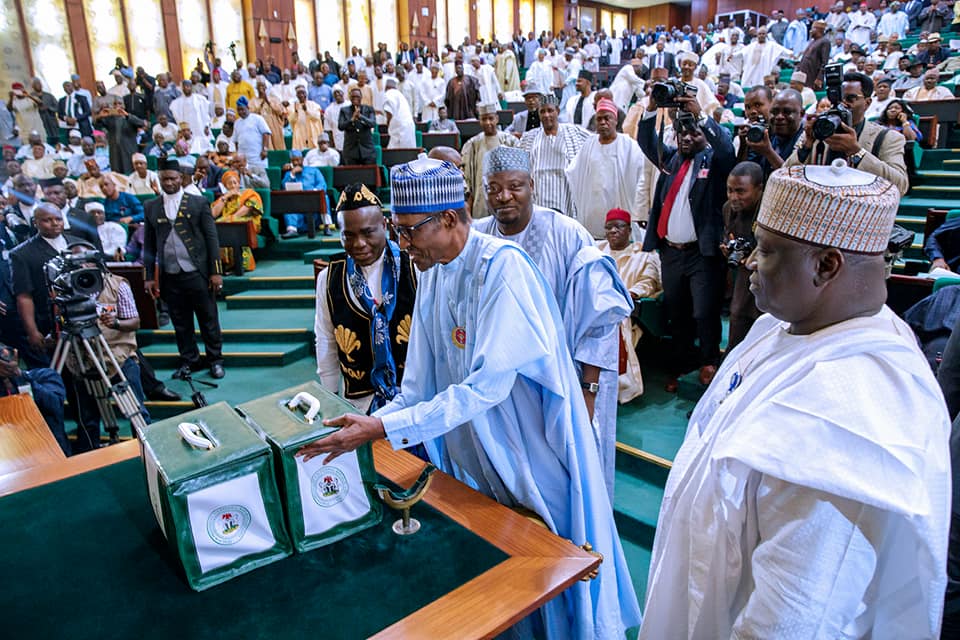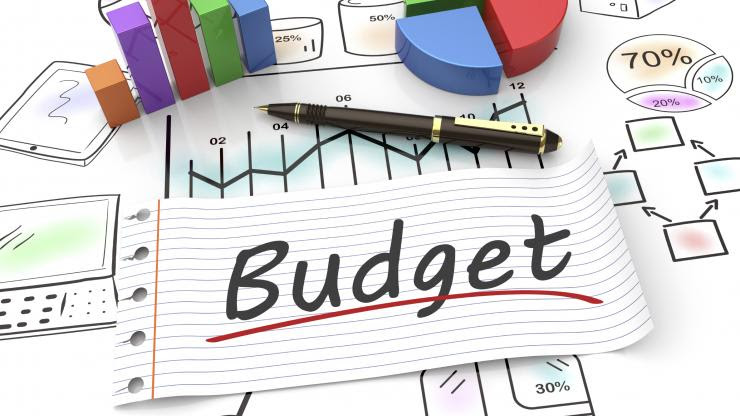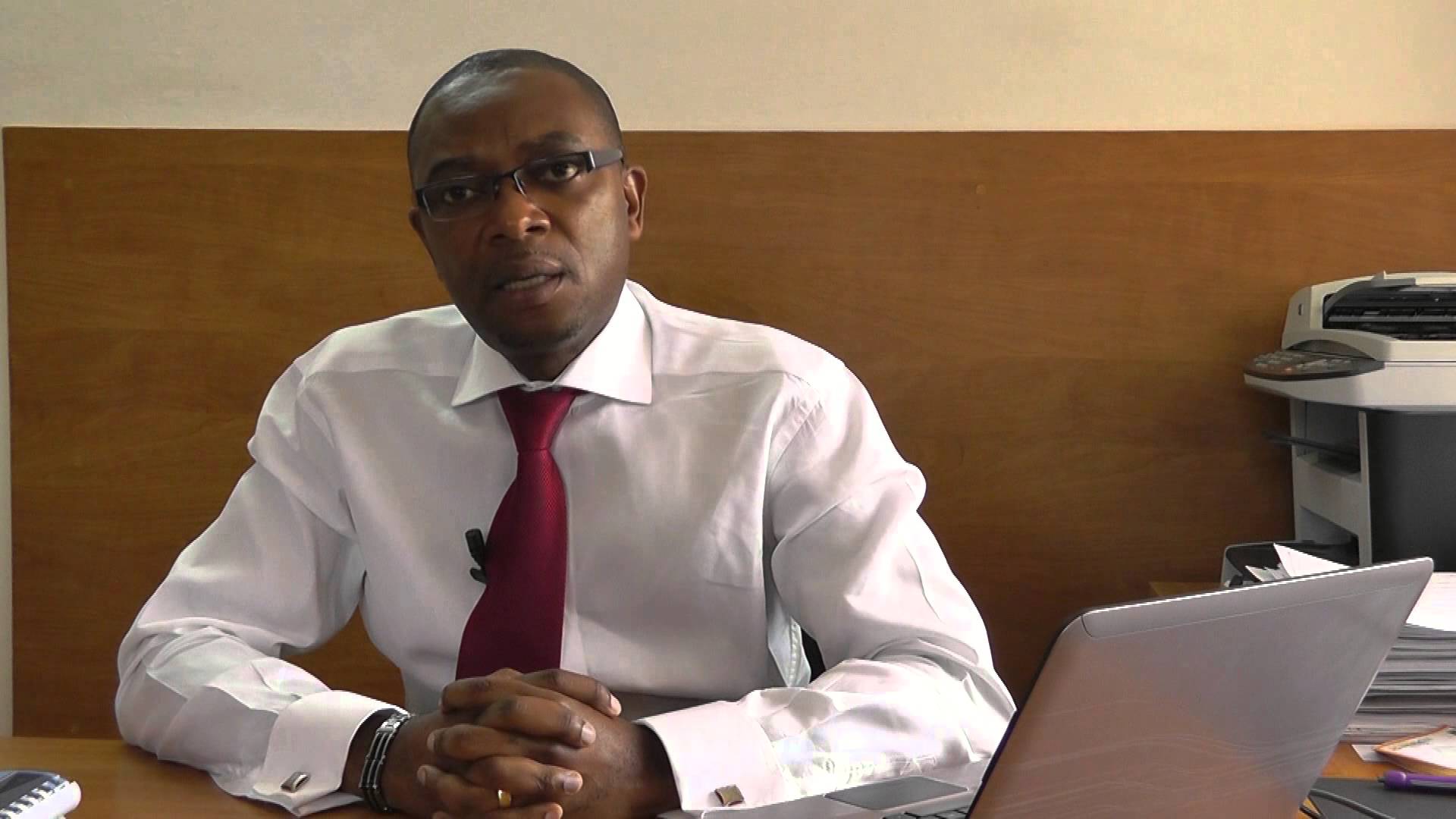Economy
Budget: NASS Must Not Fight Presidency—Udoma

By Modupe Gbadeyanka
Minister of Budget and National Planning, Mr Udoma Udo Udoma, has explained that success in producing a good 2017 Budget will require strong collaboration between the Executive and the National Assembly.
He made this known during a programme held in Abuja on Monday.
While stressing that an important tool for achieving economic recovery and sustainable growth will be the 2017 Budget, he said that it is important to always remember that both the Executive and the National Assembly will benefit politically from a budget that successfully turns the Nigerian economy around and brings prosperity to the people.
According to him, now that the country’s economy has entered a recession, stakeholders should all agree on prudent allocation of resources to key capital projects that will help to lift the economy out of recession and onto the path of sustainable growth.
“All the key stakeholders must understand and appreciate the overall budgetary constraints as well as implications of some fiscal trade-offs,” the Minister said.
Mr Udoma, at the ‘Gallery Colloquium’ organised by Orderpaper.com on ‘Budget as a critical tool for effective Executive-Legislative relations’, said the current economic situation in the country provides an opportunity like never before, for the two arms of government to set a template for succeeding governments on how national interest can be placed ahead of institutional contests.
“The National Assembly must not see itself as in competition with the Executive,” he advised.
Explaining the budgetary process, Mr Udoma said that the President, as the leader of the country, has the ultimate responsibility of delivering economic benefits to Nigerians in an all-inclusive manner based on his mandate or manifesto; therefore it is his responsibility to drive the process by setting out the framework of the Budget and all the heads of expenditure.
“It is also his role, as President, to articulate the national vision guiding the budget. And he must get each annual budget right because he has opportunity to produce only three more budgets before his tenure comes to an end,” he added.
The Minister said that in processing and considering the Budget estimates therefore, the National Assembly should see themselves as working as partners with the President to achieve the national aspirations set out by the President.
“In doing so, the question of which arm of government is superior in budget formulation should not arise, as everyone’s objective must be the success of the government in bringing the dividends of democracy to the people,” he indicated.
According to him, at this time in particular, the President needs the strong support of the Legislature to implement the tough decisions required to stimulate this economy and bring it to sustainable inclusive growth, not dependent on the vagaries of the oil price.
While maintaining that the two arms of government have a major role to play in bringing economic prosperity to the people, the Minister called attention to the fact that if the government fails, neither the Executive nor the National Assembly can completely escape the blame.
He however was confident that the members of the National Assembly appreciate the economic situation facing the country as a result of the failure over the last thirty years to successfully diversify the Nigerian economy from dependence on crude oil.
Government, he said, has a plan not just to get the economy out of recession but also back on the path of sustainable growth. Adding, the plan involves injecting a fiscal stimulus to provide funding for the 2016 Budget, which was carefully designed to reflate the economy but unfortunately has been affected by revenue shortfalls.
The Minister further stated, “It is important to stay the course in implementing the major structural changes which had been outlined by the Government in our Strategic Implementation Plan (SIP). The spending priorities in the 2017 Budget will be guided by the objectives we set out in the SIP”.
The Speaker of the House of Representatives, Hon. Yakubu Dogara agreed that there was need for an effective collaboration between the Executive and the Legislature in the budgetary process to reduce the usual friction between them during the process of appropriation.
Dogara who was making some remarks on ‘Legislative perspectives on the budget process’ said that a review of how annual budgets or Appropriation Bills have been prepared and executed in Nigeria since 1999 will reveal an unsatisfactory state of affairs, adding that there was an urgent need for Budget Reform in Nigeria.
He therefore suggested a review of the legal framework to ensure that the annual budget is submitted and passed on time before the commencement of the next financial years; a clear development plan with broad national consensus; extensive stakeholder consultation at the executive level during preparation of the budget; clear budgetary objectives and government targets to be achieved should be clearly spelt out; and there should be a robust pre-budget interface between the Executive and the Legislature to reduce areas of friction during the appropriation process, among others.
Economy
Why Transparency Matters in Your Choice of a Financial Broker

Choosing a Forex broker is essentially picking a partner to hold the wallet. In 2026, the market is flooded with flashy ads promising massive leverage and “zero fees,” but most of that is just noise. Real transparency is becoming a rare commodity. It isn’t just a corporate buzzword; it’s the only way a trader can be sure they aren’t playing against a stacked deck. If a broker’s operations are a black box, the trader is flying blind, which is a guaranteed way to blow an account.
The Scam of “Zero Commissions”
The first place transparency falls apart is in the pricing. Many brokers scream about “zero commissions” to get people through the door, but they aren’t running a charity. If they aren’t charging a flat fee, they are almost certainly hiding their profit in bloated spreads or “slippage.” A trader might hit buy at one price and get filled at a significantly worse one without any explanation. This acts as a silent tax on every trade. A transparent broker doesn’t hide the bill; they provide a live, auditable breakdown of costs so the trader can actually calculate their edge.
The Conflict of Market Making
It is vital to know who is on the other side of the screen. Many brokers act as “Market Makers,” which is a polite way of saying they win when the trader loses. This creates a massive conflict of interest. There is little incentive for a broker to provide fast execution if a client’s profit hurts their own bottom line. A broker with nothing to hide is open about using an ECN or STP model, simply passing orders to the big banks and taking a small, visible fee. If a broker refuses to disclose their execution model, they are likely betting against their own clients.
Regulation as a Safety Net
Transparency is worthless without an actual watchdog. A broker that values its reputation leads with its licenses from heavy-hitters like the FCA or ASIC. They don’t bury their regulatory status in the fine print or hide behind “offshore” jurisdictions with zero oversight. More importantly, they provide proof that client funds are kept in segregated accounts. This ensures that if the broker goes bust, the money doesn’t go to their creditors—it stays with the trader. Without this level of openness, capital is essentially unprotected.
The Withdrawal Litmus Test
The ultimate test of a broker’s transparency is how they handle the exit. There are countless horror stories of traders growing an account only to find that “technical errors” or vague “bonus terms” prevent them from withdrawing their money. A legitimate broker has clear, public rules for getting funds out and doesn’t hide behind a wall of unreturned emails. If a platform makes it difficult to see the exit strategy, it’s a sign that the front door should have stayed closed.
Conclusion
In 2026, honesty is the most valuable feature a broker can offer. It is the foundation that allows a trader to focus on the charts instead of worrying if their stops are being hunted. Finding a partner with clear pricing, honest execution, and real regulation is the first trade that has to be won. Flashy marketing is easy to find, but transparency is what actually keeps a trader in the game for the long haul.
Economy
Nigeria’s Stock Market Indices Shrink 0.41% Amid Panic Sell-Offs

By Dipo Olowookere
The Nigerian Exchange (NGX) Limited came under panic sell-offs on Thursday, as the investing community awaits the outcome of a probe into trading activities around one of the stocks on the bourse.
On Monday, trading in Zichis equities was prohibited by the regulator after it gained almost 900 per cent in one month of being listed by introduction on the growth board of the exchange.
This action triggered cautious trading on Customs Street, and things have not remained the same since then.
Yesterday, the key performance indices of the Nigerian bourse further depreciated by 0.41 per cent, the third straight loss this week, as investors book profit before being trapped.
It was observed that the energy industry gained 0.12 per cent and was the only one in green, as the industrial goods space shed 1.19 per cent, the banking counter depreciated by 0.63 per cent, the insurance sector lost 0.32 per cent, and the consumer goods segment tumbled by 0.03 per cent.
As a result, the All-Share Index (ASI) contracted by 802.39 points to 193,567.81 points from 194,370.20 points, and the market capitalisation decreased by N515 billion to N124.239 trillion from N124.754 trillion.
During the session, investors traded 868.5 million shares worth N31.5 billion in 69,310 deals compared with the 1.4 billion shares valued at N46.2 billion exchanged in 70,222 deals at midweek, showing a drop in the trading volume, value, and number of deals by 37.96 per cent, 31.82 per cent, and 1.30 per cent, respectively.
Jaiz Bank led the activity chart with 78.9 million equities valued at N1.2 billion, Japaul traded 73.3 million stocks worth N274.8 million, Access Holdings exchanged 66.9 million shares for N1.7 billion, Chams sold 56.9 million equities worth N239.6 million, and Zenith Bank transacted 45.5 million stocks valued at N4.1 billion.
The worst-performing stock for the day was Jaiz Bank after it lost 9.98 per cent to trade at N12.63, Ikeja Hotel declined by 9.90 per cent to N37.75, John Holt shrank by 9.90 per cent to N8.65, Enamelware slipped by 9.88 per cent to N36.50, and Cadbury went down by 9.69 per cent to N61.95.
On the flip side, FTN Cocoa was the best-performing stock after it gained 10.00 per cent to sell for N6.05, RT Briscoe improved by 9.95 per cent to N11.38, Deap Capital soared 9.92 per cent to N6.98, Japaul grew by 9.91 per cent to N3.77, and Ellah Lakes surged 9.72 per cent to N11.85.
Investor sentiment remained bearish as the exchange finished with 30 price gainers and 38 price losers, implying a negative market breadth index.
Economy
Champion Breweries Concludes Bullet Brand Portfolio Acquisition

By Aduragbemi Omiyale
The acquisition of the Bullet brand portfolio from Sun Mark has been completed by Champion Breweries Plc, a statement from the company confirms.
This marks a transformative milestone in the organisation’s strategic expansion into a diversified, pan-African beverage platform.
With this development, Champion Breweries now owns the Bullet brand assets, trademarks, formulations, and commercial rights globally through an asset carve-out structure.
The assets are held in a newly incorporated entity in the Netherlands, in which Champion Breweries holds a majority interest, while Vinar N.V., the majority shareholder of Sun Mark, retains a minority stake.
Bullet products are currently distributed in 14 African markets, positioning Champion Breweries to scale beyond Nigeria in the high-growth ready-to-drink (RTD) alcoholic and energy drink segments.
This expansion significantly broadens the brewer’s addressable market and strengthens its revenue base with an established, profitable portfolio that already enjoys strong brand recognition and consumer loyalty across multiple markets.
“The successful completion of our public equity raises, together with the formal close of the Bullet acquisition, marks a defining moment for Champion Breweries.
“The support we received from both existing shareholders and new investors reflects strong confidence in our long-term strategy to build a diversified, high-growth beverage platform with pan-African scale.
“Our focus now is on disciplined execution, integration, and delivering sustained value across markets,” the chairman of Champion Breweries, Mr Imo-Abasi Jacob, stated.
Through this transaction, Champion Breweries is expected to achieve enhanced foreign exchange earnings, expanded distribution leverage across African markets, integrated supply chain efficiencies, portfolio diversification into high‑growth consumer beverage categories, and strengthened presence in the RTD and energy drink segments.
The acquisition accelerates Champion Breweries’ transition from a regional brewing business to a multi-category consumer platform with continental reach.
Bullet Black is Nigeria’s leading ready-to-drink alcoholic beverage, while Bullet Blue has built a strong presence in the energy drink category across several African markets.
-

 Feature/OPED6 years ago
Feature/OPED6 years agoDavos was Different this year
-
Travel/Tourism10 years ago
Lagos Seals Western Lodge Hotel In Ikorodu
-

 Showbiz3 years ago
Showbiz3 years agoEstranged Lover Releases Videos of Empress Njamah Bathing
-

 Banking8 years ago
Banking8 years agoSort Codes of GTBank Branches in Nigeria
-

 Economy3 years ago
Economy3 years agoSubsidy Removal: CNG at N130 Per Litre Cheaper Than Petrol—IPMAN
-

 Banking3 years ago
Banking3 years agoSort Codes of UBA Branches in Nigeria
-

 Banking3 years ago
Banking3 years agoFirst Bank Announces Planned Downtime
-

 Sports3 years ago
Sports3 years agoHighest Paid Nigerian Footballer – How Much Do Nigerian Footballers Earn




















